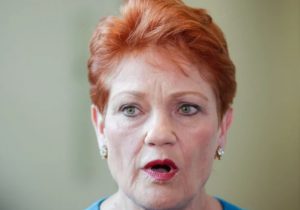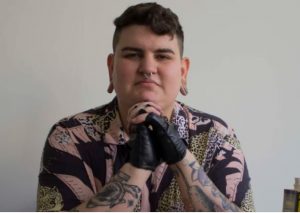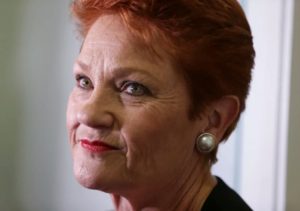
This Reddit Gold Award has been awarded to this article for ‘exceptional contribution’ on the 27th Sept, 2019
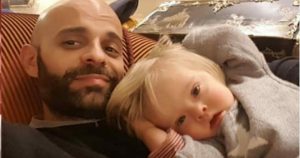
Italy: When Luca Trapanese learned there was a little girl with Down syndrome in need of a home, he did what any single, 41-year-old gay guy would do… He adopted her!
A young girl’s fortunes have changed after she was rejected first by her mother, who disowned her the moment she was born, then by her biological father, and finally by 20 potential adoptive families.
But, her life took a significant turn when Luca held her in his arms and decided to give her a home.
Luca had been a part of many social service programs since his teenage years. He came forward to adopt Alba after he was told about people’s unwillingness to adopt her.
“Since I was 14 years old, I have volunteered and worked with the disabled so I felt I had the right knowledge and experience to do it,” he said.
Luca Trapanese is gay, catholic and single – a year ago, he adopted a baby girl with Down’s Syndrome
“Mine and Alba’s story shatters so many stereotypes about fatherhood, religion and family. But I didn’t mean it to be that way.”
Luca is highly experienced when it comes to volunteering in various social service programs including “A Ruota Libera” Foundation, a group that provides assistance to children with Down syndrome.
Luca further said that for him a disabled child is not a second choice solution, but a conscious choice with respect to his vocation and his abilities.
The story of Luca Trapanese’s journey to adopting baby Alba has gone viral for several reasons, paramount of which may be the fact that social services don’t often grant custody to a single, homosexual man.
Nevertheless, they made an exception in Luca’s case … and we’re so very happy they did.
According to the BBC, 41-year-old Italian Luca published a book wherein he recounts his journey to becoming the father of Alba, a girl with Down syndrome.
During a radio interview, Trapanese explained that his case is special because it “destroys stereotypes about fatherhood, religion and family.”
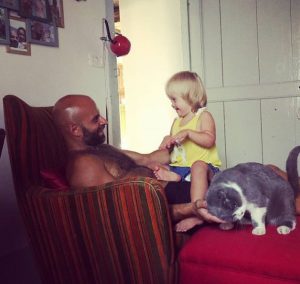 In Italy, adoptions for homosexual and single parents have traditionally been a complicated affair.
In Italy, adoptions for homosexual and single parents have traditionally been a complicated affair.
Luca adopted Alba back in 2017, when she was just 13 days old and had already been passed up on by 20 families because of her condition.
Luca himself had worked in a host of care centers for people with special needs, and always wanted to become a father.
That was why, despite not having a partner, he decided to press forward with the adoption of Alba, who now enjoys a happy home with her father.
According to the BBC, Alba is a determined young child who can be stubborn on occasion. She loves to play and dance, and enjoys the company of other people.
Related Family Law Videos
